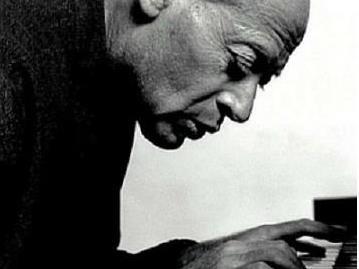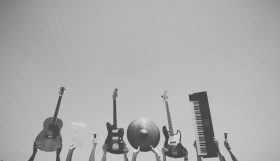David Helfgott, piano. Photograph courtesy Hawthorn Arts Centre.
Genius and Maestro are amongst the many accolades David Helfgott has received for his performances in most corners of the globe. But, while they are well deserved, they are not the whole measure of the man. To judge a pianist simply on skill has merit but, to be exceptional, a pianist must have an ability to transmit to his/her audience a unique interpretation of the composer’s intent. The fact that Helfgott, by dint of past emotional instability, expresses himself by verbally communicating with the piano and his audience while playing, is something that adds to his interpretation rather than distracts. It is as though he wants to reveal a precious secret to his audience, to have them hear what he hears, understand what he understands and love the music as he does. The accompanying handshakes, hugs and joyful raised clenched fists are not unlike similar expressions from some tennis players and jazz pianists.
34 years ago I threaded my way through a wall to wall crowd in a small wine bar in Perth, Western Australia to see who was making such wonderful music on the piano. I had never heard anything like it and, today again, I have never heard anything like it.
The figure hunched over the piano in 1982, mumbling to himself and grabbing a cigarette at each end of the piano for a quick puff, has changed little over the years save for a healthier lifestyle and change of dress. There was, however, what Helfgott calls a ‘blessed’ change and that was his marriage to soul mate, Gillian, who brought him from the darkness of his illness into the spotlight where his talent has thrived. Although the movie, Shine, brought recognition to more people, in fact, Helfgott had been winning awards around the world for ten years before the movie was made.
Looking at the piano standing alone on the bare stage I wondered if he still had the magic. But the charisma of the Helfgott personality is such that he is unaffected by his fame and as happy playing in country halls, town halls like this one, the Sydney Opera House or the great recital centres of the world.
With no introduction, he suddenly ran on stage like an excited child with something to share with us. I held my breath as, with a wave of his hand, he sat at the piano and brought us Beethoven. It was a perfect piece to show his skill, the lightness of the main theme, the trills, the resounding crescendos, his nose almost touching the keys, ear listening as he struck the notes perfectly, checking with the audience – ‘did you hear that,’ he could have been saying, or, perhaps, reminding them that the composer of the great music had been deaf? He emits an almost joyful sound, it’s indecipherable, but a wonderful expression of feeling.
Now 69 years old: the fingers are as nimble as ever, the pauses still exact and the interpretation magnificent. He caresses the Chopin, one of the Romantics he loves and, after interval, Liszt’s Hungarian Rhapsody No 2 sent shivers up your spine with the first familiar notes.Then, four more Liszt pieces that many pianists believe are the most difficult to play. The Concert Etude with gently crossing hands, followed by the incredibly difficult Paganini brings the audience to its feet, as one. But Helfgott knows how to pull on the heartstrings and no better way than with the Mephisto Waltz No. 1 to finish!
The virtuosity of these pieces cannot be dissected note by note when a master like Helfgott is playing, not just one man playing with a conductor and orchestra to guide him, but one man playing seven major works from memory. The energy he transmitted ran – like electricity – through everyone in the hall as they cheered and clapped and stood in respect, wanting more and, of course, they got more and it could only be his signature encore from those life-changing days at Riccardo’s The Flight of the Bumble Bee played, not once but with a last run back on stage, twice, with love.
Stars: 5 out of 5
DAVID HELFGOTT IN RECITAL
Beethoven Sonata Op.57 Appassionata; Chopin Ballade No. 1 in G minor Op 23; Liszt Hungarian Rhapsody no. 2; Gnomenreign; Concert Etude No. 3 Un Sospiro; Paganini Etude No. 3 La Campanella and Mephisto Waltz No. 1
PRESENTED BY Hawthorn Arts Centre
VENUE: Hawthorn Arts Centre
DATE: Friday, 7.30 pm, 11 November, 2016





